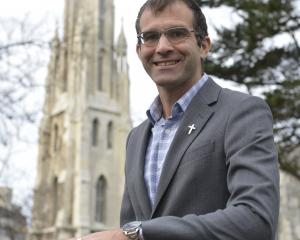What role should family, the Church and the State have in New Zealand’s ongoing issues, asks Stu Crosson.
What should the relationship between your family and the Government look like?
This is a similar question to the one Murray Rae was asking two weeks ago in this column about the Church and government and the dangers inherent in blurring the boundaries. These three institutions; family, church and state, have dominated our Western culture for 2000 years and there is good reason for them to be at the centre of our society. During these two millennia, each of these three institutions has played a hand in shaping our culture, perhaps even a dominant hand at times.
From AD1 to AD300 the State had the upper hand through the dominance of Rome.
The conversion of the Roman emperor to Christianity early in the 4th century saw the Church take an ever-increasing prominence over the next 1000 years. The Reformers of the Church at the beginning of the 16th century released the vice-like grip of the institutional Church on Western culture and reaffirmed the holy estate of marriage, allowing the family to establish some form of sovereignty over their own affairs. The French Revolution and Enlightenment thinking significantly reduced the role of the Church (and the monarchy), and since that time the state government has been re-establishing a dominant place in Western culture.
Just as Rae cautioned two weeks ago about blurring the lines between church and state, I want to voice caution about blurring the lines between all three institutions: church, state and family. Jesus Christ instructed us to, "Give back to Caesar what is Caesar’s and to God what is God’s" (Mark 12:17). This command implies a God-given role for the State.
In that context it was the duty of citizens to pay taxes. Of course, Jesus’ teaching ended up getting him killed, but after his resurrection, his followers went on to establish the Church.
Across all denominations of the Church, Jesus is the acknowledged head of the Church and this statement about giving to Caesar and to God can be seen to validate both the institution of the State and the Church. Jesus also strongly advocated for the family, affirming the marriage covenant between a man and woman (Matthew 19:4-6). Apostles then outlined the God-given authority of the family to raise our children in the ways of righteousness.
History has shown that when the Church starts to tell the State what it should do, things can go tragically wrong. Consider some of the excesses of the medieval Church. The greater danger for today, however, is the growing authority our culture is giving to the State in terms of how the family should function. It has been assumed for some time in New Zealand culture that education should be the responsibility of the State. In traditional Maori and Pasifika culture this has not been assumed. In Western culture historically this has not been assumed. Indeed, for hundreds of years it was the Church that took responsibility for children’s education.
Our recent New Zealand Government’s Budget that looked to provide $350 to all workers earning less than $70,000 per year, was a political move of wholesale welfare, suggesting something is deeply flawed in the structure of our working economy. It would appear our expectations upon our Government are growing year by year to fix every problem we encounter: inflation, climate change, mental health, discrimination, ram raids, truancy, theft, violence and on and on.
As a culture we need to have a renewed debate over what role the family should play, what role the State should play and what role the Church should play, to address some of these issues.
If the State’s role is to administer public goods, public justice and to be a protector of the rights and responsibilities of other institutions, let her focus on these things. If the family’s role is to raise and educate our children in the ways of righteousness and justice that our children can take their place in building a cohesive civil society, let us focus on that.
If the Church’s role is to make visible and audible on Earth the heavenly rule of God, let her focus on that by preaching God’s word and rightly administering His sacraments.
The trouble we are now facing of increasing lawlessness, poverty, discrimination and violence is the inevitable turning of our back on God’s prescribed laws for this Earth, His creation. In a so-called secular society, the temptation to look to the State to provide for us what only God can provide is a foolish and dangerous temptation to embrace.
As the 20th century showed us and as this year is repeating, an all-powerful state is a tyranny we must avoid for the love of our neighbour, our children and our God.
- Stu Crosson is the senior minister at Hope Church, Dunedin.












